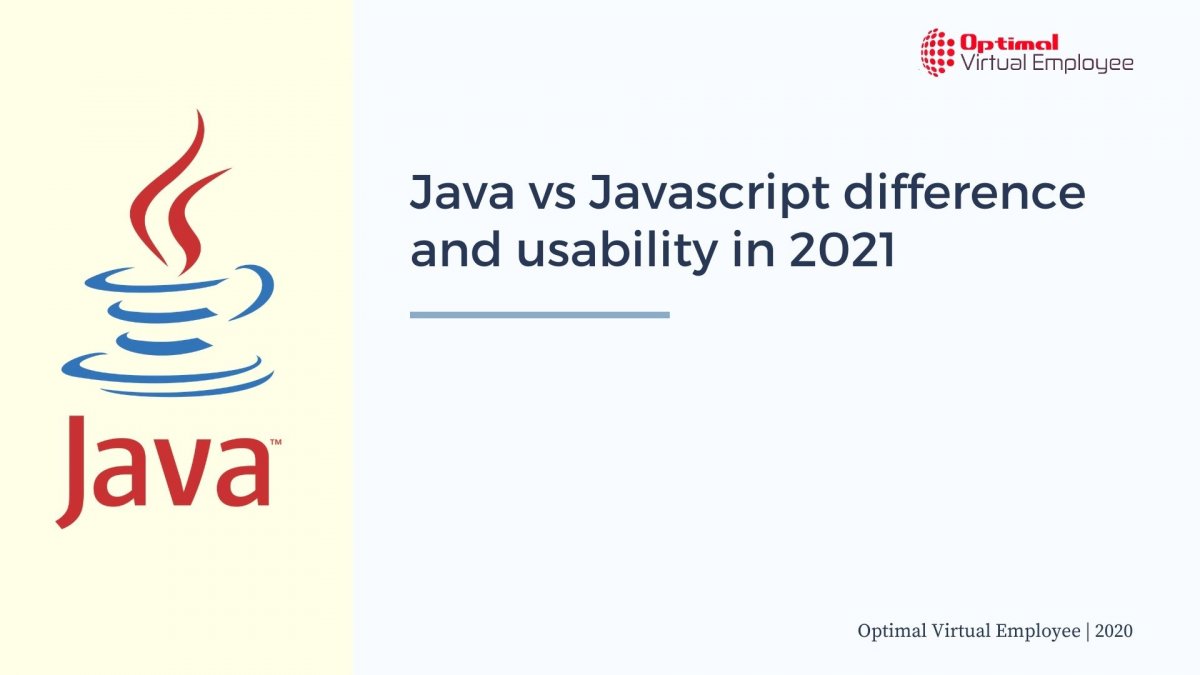It’s common for beginner web programmers to be confused between Java and Javascript programming languages and committing the sin of using them interchangeably. In reality, however, both Java and Javascript are completely different programming languages with significantly different strong points.
While both Java and Javascript are written, assembled and executed with significant differences, they ensure a stellar performance. JavaScript is modern browser friendly, and most websites use it to enhance the user’s experience. Java applets are also browser friendly. However, they have seen a sharp decline in popularity, including compatibility and security. Both languages require different plug-ins. Most website visitors have JavaScript enabled and Java applets disabled, especially in case of the proliferation of mobile browsers.
As libraries and frameworks are indispensable when it comes to providing access to general and purpose-specific code to cut short development time, Java and JavaScript both have a wide range of library and framework options available to assist software developers in a variety of cases. Java needs an entire java development kit, unlike JavaScript.
Difference Between Java and Javascript
Java is an Object Oriented Programming language that in particular can be used for Android apps, credit card programming, desktop applications and even web enterprise apps. Javascript, on the other hand, is an Object-oriented programming scripting language that can make web pages more interactive and thus engaging. It can even help with the creation of animation in HTML.
- Java supports android as well as iOS mobiles, but Javascript is only meant to be used by the third party.
- Java is created to be a strong, safe and static programming language whereas Javascript is a high-level programming language which is dynamic, light and convenient.
- Java runs on virtual machines, but JavaScript runs on JavaScript codes.
- Java neatly wraps up server side development; however, JavaScript is reserved for developing client side scripts for functions like validation and interactivity.
- Java comes with an independent platform and applications made on Java are only run on JVM. Javascript whereas has developed a browser, and even its codes are only run on the browser.
- In Java, objects are only based on class and compile its file in the .class extension; moreover, it never makes any program without creating a class. Javascript is based on a prototype which also extends as prototype.js.
- Java is always compiled before it can be run so that structural problems with code become apparent very quickly. JavaScript is not compiled similarly, so all bugs are found at runtime. As such, the debugging capabilities of JavaScript are highly dependent on the execution environment.
- Java code is written in an Integrated Development Environment (IDE) and always compiled into bytecode. This bytecode is eligible for humans, and any Java Virtual Machine (JVM) can run it. JavaScript code is always executed by a JavaScript engine in the same syntax as it is written in. However, JavaScript files that are sent over the internet are often compressed into a barely readable format to minimize their size.
- Java enables developers to write a code once and deploy it to any operating system, without any need to make changes. JavaScript comes with a standard through ECMAScript and is susceptible to the differences in execution environments generally in the form of different browsers. Developers must write JavaScript code for different environments. The program itself can query the environment to decide what branch of code to run for that specific environment.
- To change Java application environments requires several steps using specialized software to compile and deploy the changes. Making changes to JavaScript can sometimes be done with a simple text editor.
- JAVA has high files which use much more storage of the device than Javascript, which doesn’t use much memory and stores its files in lesser space.
- Opposite of JavaScript, Java supports multi-threading.
- Java enjoys a thread-based approach to concurrency, JavaScript, on the other hand, has an event-based approach to it.
- Java uses more memory than JavaScript that is used to connect web pages.
- Java features unreadable byte-code type, but JavaScript is easily readable.
- Java is a platform-independent language, but JavaScript comes with speed and interoperability.
- JavaScript comes with additional flexibility over Java implementations.
- JavaScript is faster when compared to Java because JavaScript can execute the source program code. Java supports native code.
- JavaScript supports unique features like dynamic typing.
- JavaScript supports smaller, executable program size.
In the End
No computer programming module is complete without Java and JavaScript today. A young web developer must learn both Java and JavaScript to brush up their coding skills. Both Java and JavaScript open up novel ways in which web programmers can escalate user experience in their development projects. New programmers can benefit in their career if they master both Java and JavaScript at the start.
Are you looking for a web programmer? Give us a call today.









